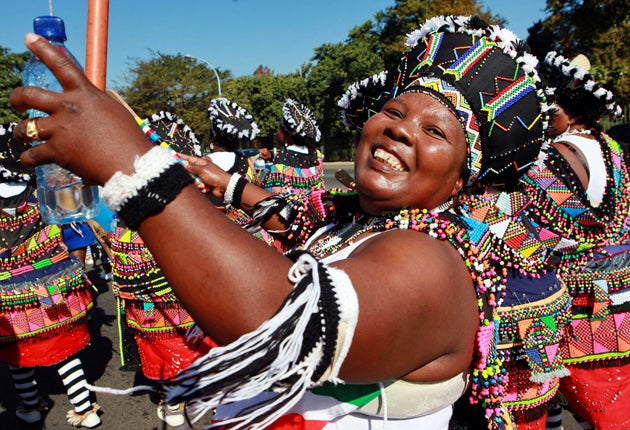
What courses? African studies; African language and culture; North African studies. A variety of African languages, including Hausa, Arabic and Swahili can also be studied, usually as half of a joint honours degree.
What do you come out with? A BA, or a BSc if studied alongside international management at SOAS.
Why do it? "Africa is a continent diverse in its languages, cultures, religions and historical and political experience. A degree in African studies will provide insight into the continent from such perspectives and allow the student to specialize in areas of interest whether a particular country or discipline. A wide knowledge of what is important in the lives of people in Nigeria, Somalia, South Africa etc. will be a great asset to anyone wishing to work in Africa. It will also challenge commonly presented views of Africa in the mainstream media and will enrich any future visit to the continent." - Dr Martin Orwin, senior lecturer in Somali and Amharic, School of Oriental and African Studies
What's it about? Bringing together a mixture of disciplines in order to learn fascinating languages and dialects, examine writers, poets, politics, economics, and Africa’s brutal and vibrant history to understand the region’s multi-faceted culture. The only two universities to offer a specific African studies undergrad course are Birmingham and SOAS, with others offering it as part of a joint honours degree or as an option among a wider subject area, such as geography or anthropology. At SOAS the course explores culture and literature, with students taking an African language for at least one year. Birmingham offers a comprehensive interdisciplinary mix including history, politics, sociology, anthropology, geography and literature. North African language Yoruba is taken in the first year, while in their second and third year students can opt for modules from outside the discipline. Cambridge is famous for having great African studies resources and lecturers, but doesn’t offer a specific undergraduate degree.
Study options: Most courses are three years, although if you’re studying a language it’s likely you’ll spend a year abroad. SOAS students studying an African language or taking African language and culture take a four year course, spending their third year in a university in Zanzibar or Nigeria. While a year abroad is not compulsory for all African studies students, spending time in Africa is actively encouraged.
What will I need to do it? SOAS asks for AAB for all of its African courses and Birmingham requires three Bs at A-level. You don’t have to have any experience in your chosen language if going to SOAS, but an A-level in one language is beneficial and is used as a pointer to linguistic capability. Birmingham says that an interest in Africa is taken into account more than a detailed prior knowledge of the continent.
What are my job prospects? After gaining an in-depth understanding of the continent, it's not surprising that many students choose to pursue careers with development agencies and NGOs such as Amnesty International, Save the Children and even the UN. However, graduates have similar options to other arts and humanities students, going into industries such as publishing, the media and teaching. Middle Eastern and African studies came sixth for graduate salaries in The Times' Good University Guide 2012, with pay averaging approximately £25,000 per year. However, according to the same guide, 11 per cent of graduates were unemployed sixth months after finishing, and only 30 per cent were in graduate-level jobs.
Where’s best to do it? While Cambridge and St Andrews both have excellent resources and academics in African studies, SOAS and Birmingham are the only places you can study the degree on its own, and both come out well in the Complete University Guide.
Related degrees: Anthropology; ; geography; Arabic and middle eastern studies.
Subscribe to Independent Premium to bookmark this article
Want to bookmark your favourite articles and stories to read or reference later? Start your Independent Premium subscription today.

Join our commenting forum
Join thought-provoking conversations, follow other Independent readers and see their replies